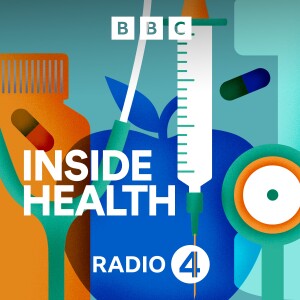
Folic acid in flour, Southampton FC and hip and groin pain, Online private doctors
 2016-01-26
2016-01-26
Download
Right click and do "save link as"
Scotland is considering whether to add folic acid to staple foods like flour to protect babies against conditions like spina bifida.
Frustrated at the lack of action by the UK government on the issue - despite government advisers recommending for 16 years that flour should be fortified with folic acid - the Scottish government is preparing to go it alone.
Spina bifida is one of a group of severe congenital abnormalities known as neural tube defects that affect around 5000 developing babies in Europe every year. It's long been known that taking folic acid supplements, before and after pregnancy, can reduce the likelihood of these defects, as Helen Dolk, Professor of Epidemiology at the University of Ulster explains to Dr Mark Porter.
Professional footballers are vulnerable to hip and groin injuries and much more likely to get arthritis as they get older. Southampton Football Club has introduced a new hip stretch and flexibility programme for all their players and the result is a dramatic reduction in injuries. Mark visits the club and meets Olufela Olomola, who, before his transfer to The Saints, spent a season on the bench with hip and groin injury at Arsenal. Just a season later he's recovered and now captains The Saints under 18 team. Mo Gimpel, Director of Medical and Science Performance Support at Southampton FC says the decision to focus on hip flexibility came several years ago, after serious hip and groin injury was keeping key players off the pitch, and the club was losing matches. The new pre-activation sessions have transformed the club's injury rates and research teams are partnering the club to find out how hip impingement develops in the first place. Professor Sion Glyn-Jones from the Nuffield Department of Orthopaedics, Rheumatology and Musculoskeletal Sciences is leading a group tracking 110 young players from The Saints' Footballing Academy, a league two club, a cricket club and pupils from local schools. Detailed mechanical and imaging studies of these young players' hips will help to show exactly when hip injury, or femoroacetabular impingement, first appears, what causes it and most importantly, how to prevent it in the first place.
Private medical helplines providing 24/7 advice are the latest development in private medicine. New companies are popping up, attracting millions in private finance. They offer people access by e-mail, phone or online visual link to a GP consultation, for a fee. Dr Karen Morton, founder of DrMortons.co.uk tells Mark why she believes pressure on primary care will result in an inevitable rise in demand for such services. People who want reassurance and advice, she says, can use such helplines and avoid clogging up GP waiting rooms with relatively minor complaints. But Dr Margaret McCartney disagrees and says phone-only consultations risk fragmenting medical records and undermining the relationship between a GP and their patient.
view more
More Episodes
PPIs, Aspirin and cancer, Radiotherapy and smoking
 2017-07-25
2017-07-25
 84
84
 2017-07-25
2017-07-25
 84
84
NHS Special: What needs to give?
 2017-02-14
2017-02-14
 37
37
 2017-02-14
2017-02-14
 37
37
Preventable deaths, Poo bank, Waterbirths
 2017-01-24
2017-01-24
 21
21
 2017-01-24
2017-01-24
 21
21
Prostate Cancer
 2017-01-03
2017-01-03
 66
66
 2017-01-03
2017-01-03
 66
66
Breast cancer, Alcoholism, CRPS, Generics
 2016-09-27
2016-09-27
 19
19
 2016-09-27
2016-09-27
 19
19
012345678910111213141516171819
Create your
podcast in
minutes
- Full-featured podcast site
- Unlimited storage and bandwidth
- Comprehensive podcast stats
- Distribute to Apple Podcasts, Spotify, and more
- Make money with your podcast
It is Free
- Privacy Policy
- Cookie Policy
- Terms of Use
- Consent Preferences
- Copyright © 2015-2024 Podbean.com


